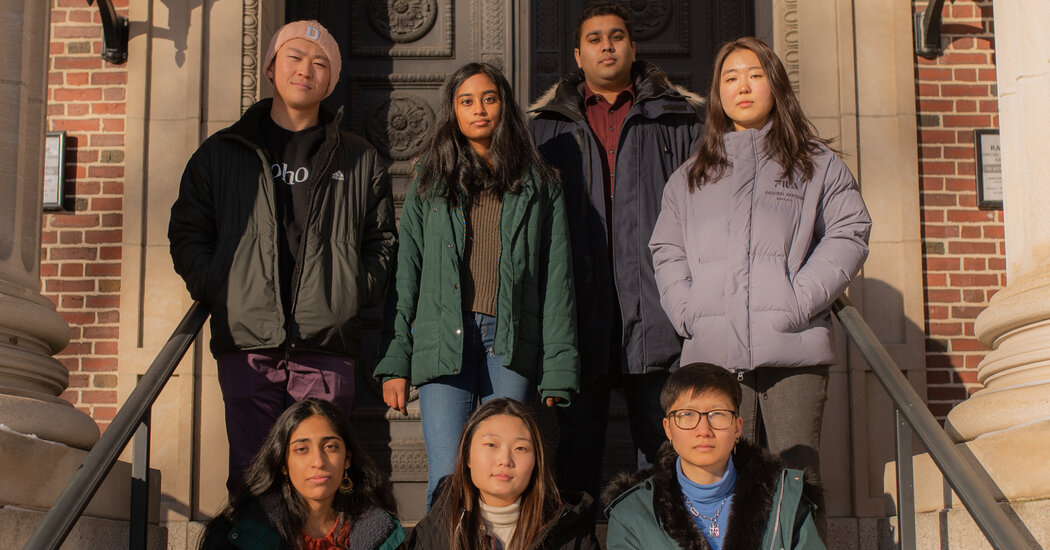
Ms. Lawrence, the Dartmouth spokeswoman, reiterated that new courses and programs of study are the domain of educators, not administrators.
“Faculty members who have an interest in — or who are currently teaching courses in — Asian American studies are exploring the possibility of developing an Asian American studies minor, including assessing the number of established course offerings in this area and how many additional courses would need to be offered to constitute a robust minor,” she wrote in an email. Dartmouth also noted that a search is underway “for a faculty member in Asian American literature.”
Campus Activism, Coast to Coast
The movement at Dartmouth is one of several that amassed support on campuses last year. After the Atlanta shootings, students at Davidson College in North Carolina gathered for an event called Why Davidson Needs Asian Studies Now More Than Ever. That same month, Georgetown University’s student newspaper, The Hoya, published an editorial urging the university to establish an Asian American studies program, given the rise in anti-Asian violence.
“What happens in the academy often follows what happens on the streets,” said Diane Fujino, a professor of Asian American studies at the University of California at Santa Barbara and an editor of the forthcoming anthology “Contemporary Asian American Activism.” “This is a moment that’s unprecedented in terms of national attention to Asian American issues and concerns, rising out of Covid and the attacks on Asian Americans and, of course, Atlanta.”
There are several precedents for the current wave of activism. During the 1960s and 1970s, as the Black Power Movement, the women’s movement and anti-Vietnam War movement were gaining momentum, Asian Americans began organizing too. In 1968, Emma Gee and Yuji Ichioka, two graduate students at the University of California, Berkeley, started the Asian American Political Alliance, which historians often cite as one of the earliest uses of the term “Asian American” to unite the ethnic subgroups of Asian descent.
That same year, the Asian American Political Alliance joined the Black Student Union and other student groups at San Francisco State University to form the Third World Liberation Front coalition, resulting in one of the longest student-led strikes in U.S. history. Subsequently, the university formed the first college of ethnic studies in the country.






